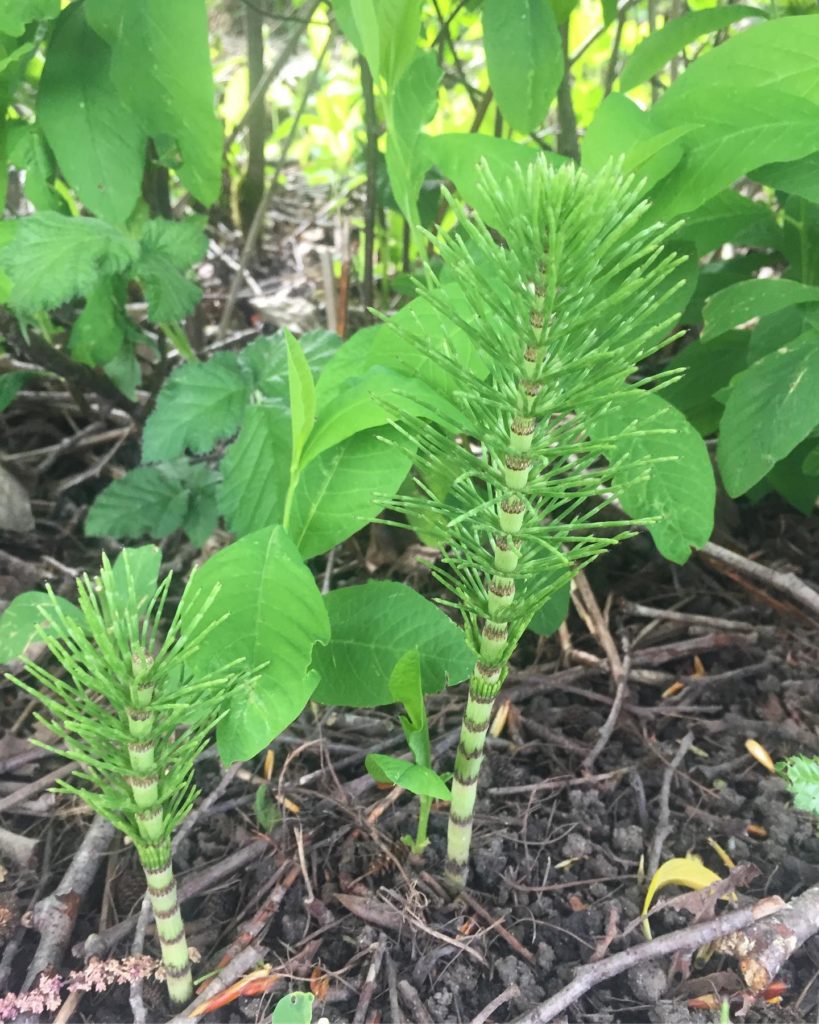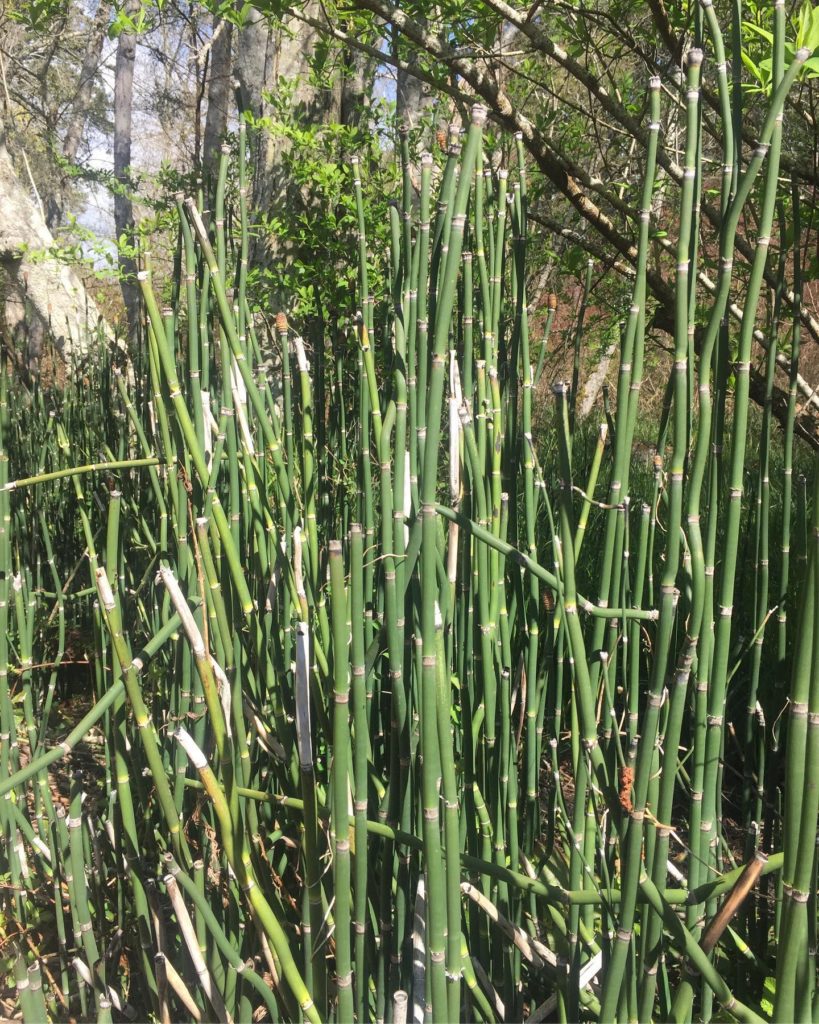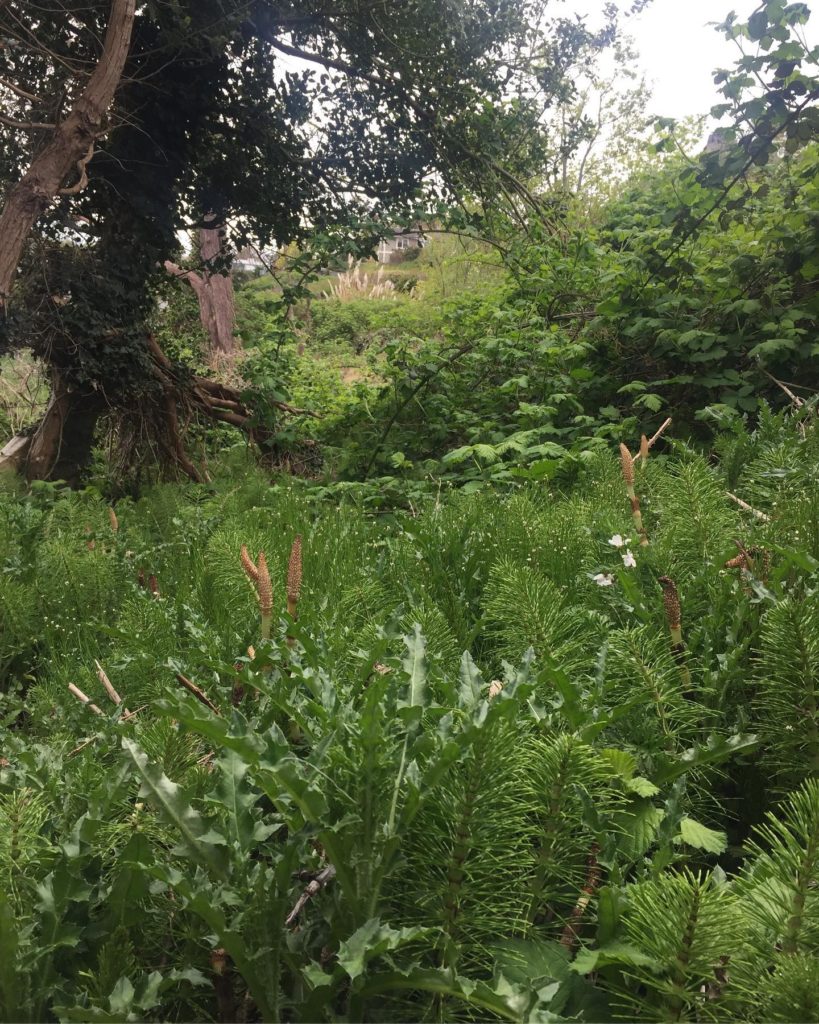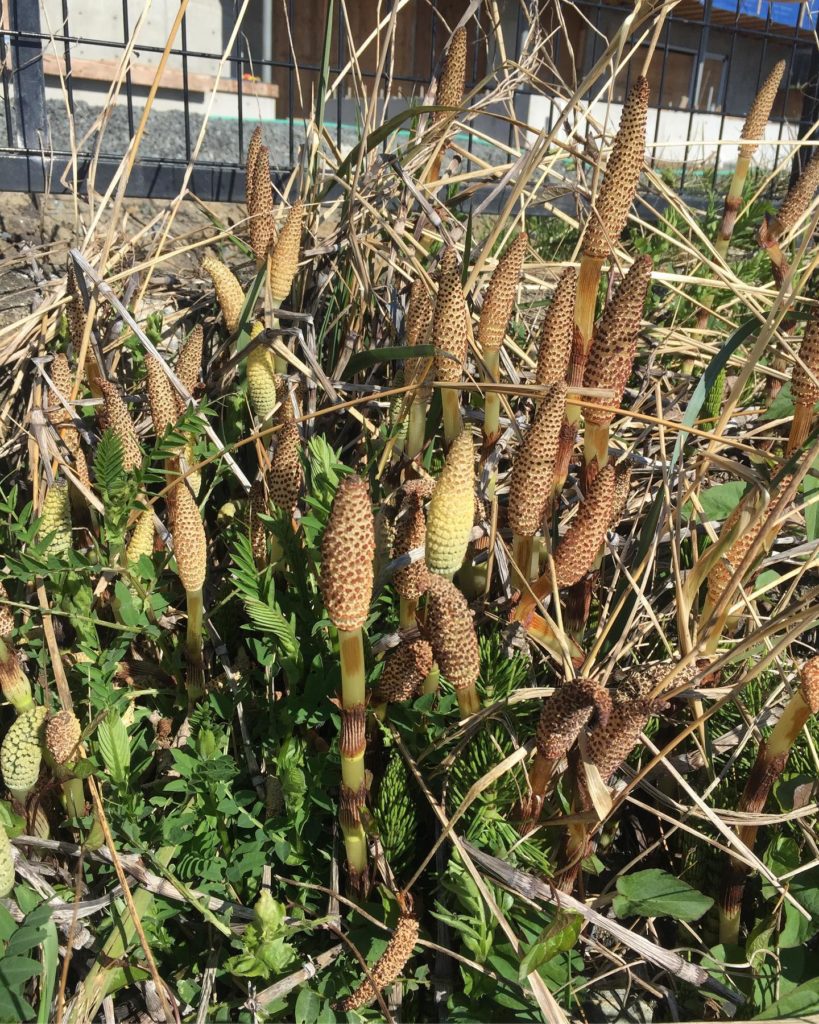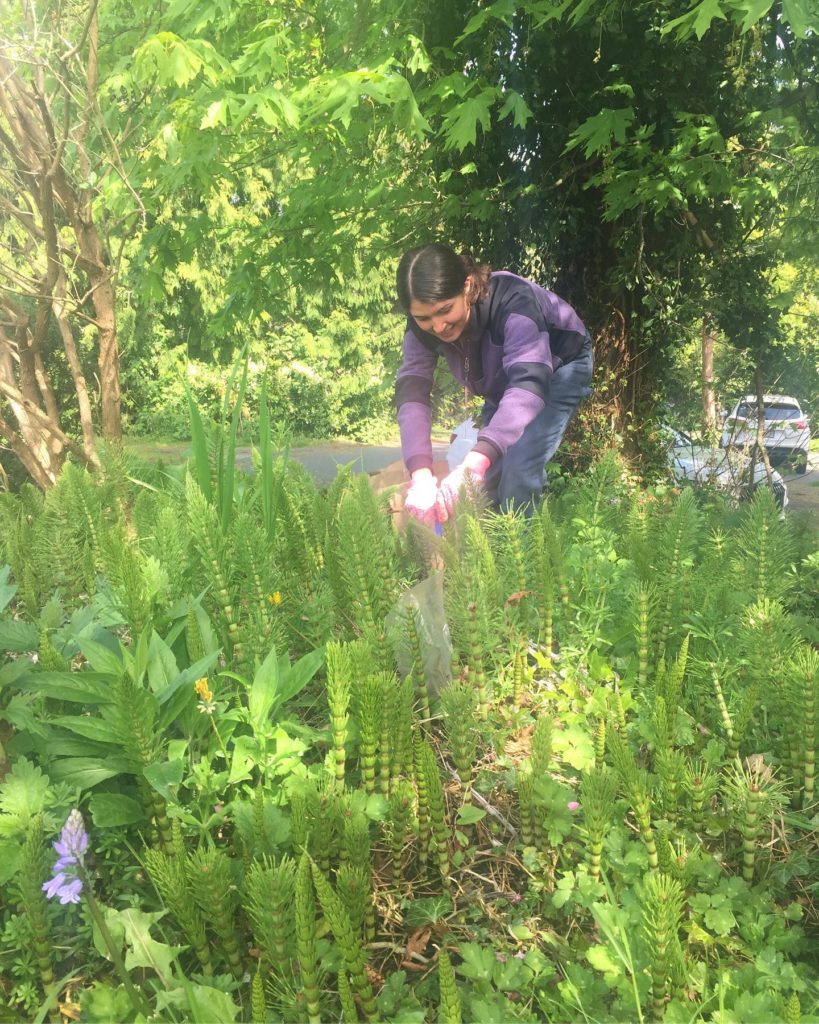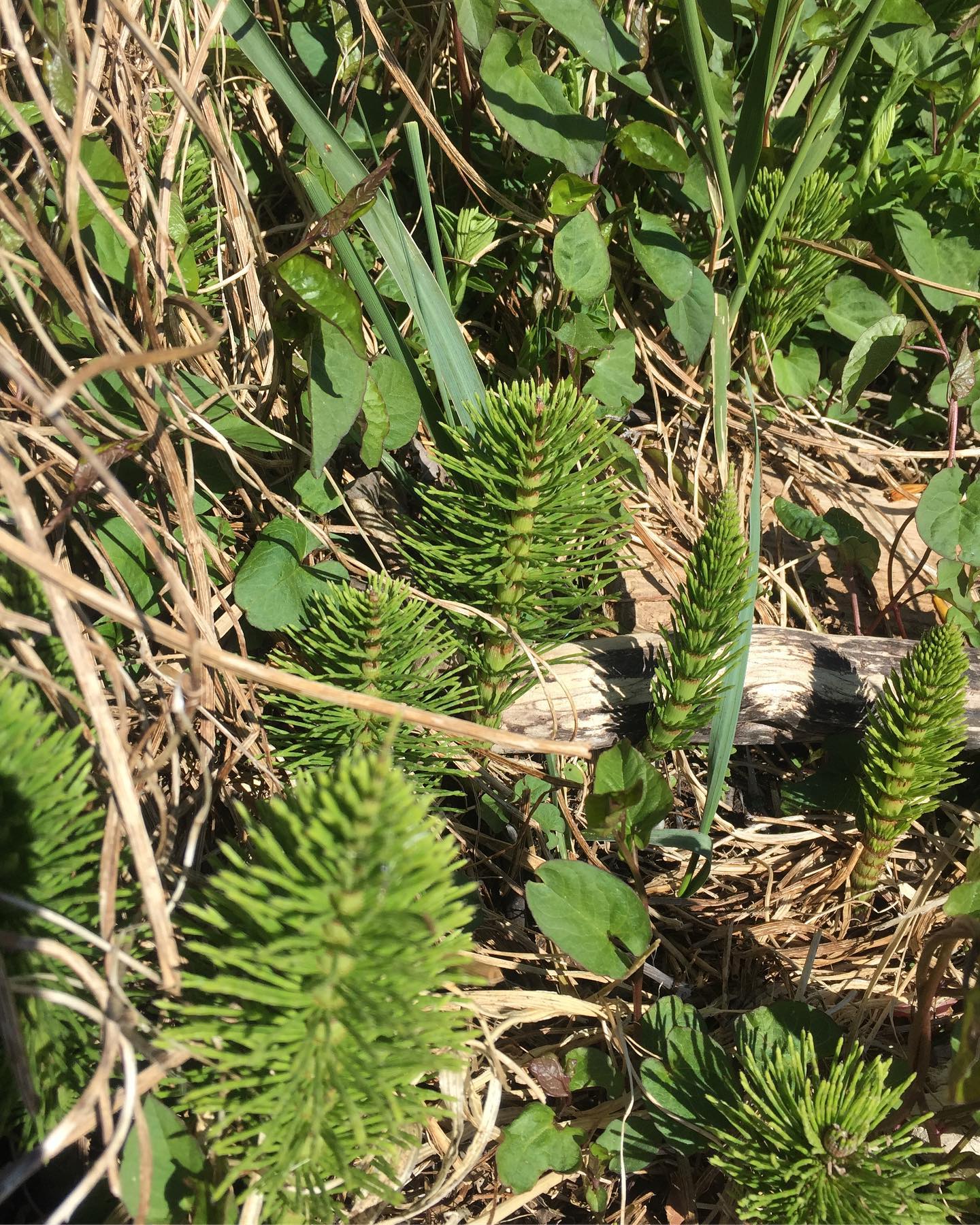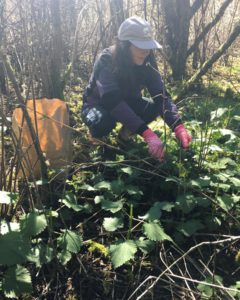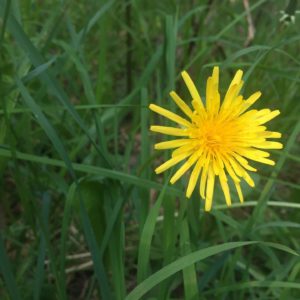Next time you venture out of your cozy quarantine nest into the great outdoors, slow down and keep your eye out for this plant. It’s neither a grass nor a fern, nor a type of bamboo. It’s called Horsetail (Equisetum), a living fossil that has been around since the Devonian period (419 – 358 million years ago). Horsetails, along with mosses and ferns, came before seed-producing plants – trees and flowers as we know them today had not yet come to be. Instead it was Horsetail that dominated early forests, reaching 30 m tall and providing habitat for primitive land-dwellers, from giant insects to dinosaurs. Nowadays, it is commonly viewed as an impossible-to-get-rid-of weed. If it can survive four mass extinctions, it can probably survive your herbicides too.
Horsetail is much smaller than it used to be – all 20 or so species (that exist under one remaining genus) are less than a third of their Devonian height, and most are under 1 m tall. They tend to prefer swampy wet areas – I find many in ditches or along stream banks. There are four different species that I generally see here in the Pacific Northwest – Field Horsetail, Scouring Rush, Swamp Horsetail, and Giant Horsetail.
As such an ancient plant, Horsetail has had plenty of time to be integrated into traditional medicine practices around the globe. It is valued for its high bioavailable silica content. Silica is used to build collagen which in turn builds connective tissue like teeth, skin, hair, cartilage, fascia, and bones. It is therefore a powerful ally for arthritis, joint pain, sprains, cavities, hair health, or other soft tissue injuries.
You can infuse horsetail into honey, apple cider vinegar, hot water, or juice it. Young shoots can also be peeled and eaten as a funky vegetable. It is best to only harvest Horsetail when its branches fall no more than 45° off the stalk as at this point mineral salts immobilize the silica and make it less bioavailable. These mineral salts can cause irritation if taken internally. Scouring rush (the last photo) is not used medicinally but makes a great pot scrubber.
